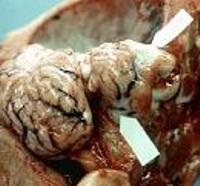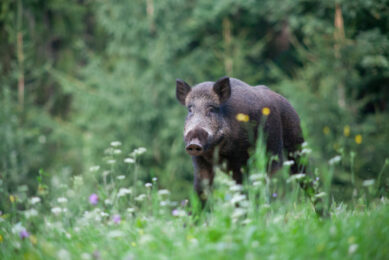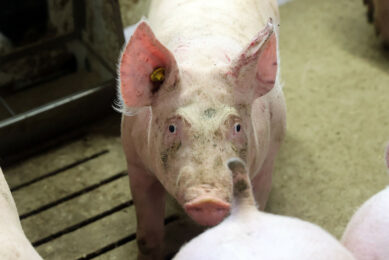N-American case of pig meningitis in humans

US scientists have confirmed the first reported case of pig meningitis in a human being in North America.
The unlucky pioneer is a healthy 59-year-old farmer in the state of New York, complaining of sudden fever and confusion. His pulse was racing, he breathed rapidly and he had meningitis, an inflammation of the membranes covering the brain and spinal cord.
The hospital’s preliminary tests revealed the presence of Streptococcus suis, a bacteria prevalent in pigs that can lead to meningitis.
Awareness
“This should heighten awareness of the possibility of this illness for people with the occupation of dealing with swine,” said Kara Willenburg, MD, of Bassett Hospital. “But it should not affect the lives of the general public.”
Farmers can contract the disease from handling pigs and their faeces. Butchers are also at risk. Washing hands and cooking pork thoroughly can minimise risk.
Insights
Ruth Zadoks, research associate and veterinarian at Cornell University’s College of Veterinary Medicine, provided the insights and a DNA-level analysis of S. suis strains found in both the farmer and pigs from his farm.
With the farmer’s bacterial cultures and the pig samples, Zadoks confirmed that the patient was indeed infected with S. suis.
“Even though we did not match the human strain with those of the pigs, the strain from the farmer matches superficially a strain found in both pigs and humans in Denmark and the Netherlands,” said Zadoks. “Some strains are more likely to cause disease in humans.”
Europe and Asia
S. suis has occasionally jumped to humans in Europe over the last 20 years. However, people have regularly contracted the disease in South East Asia, especially China where a 2005 outbreak resulted in 204 human cases with 38 deaths, and some 600 pigs killed. In 2005, South America also documented its first case from Argentina.
“It could be that the disease is spreading,” said Zadoks. “But also we may be just better at recognising it.”
All human cases of S. suis have originated with an animal infecting a human. Public health officials have no fears that the pig bacteria will spread from one human to another.
Related website:
• Cornell University
For the latest pig news, subscribe here











